- Home
- Salman Rushdie
Quichotte Page 10
Quichotte Read online
Page 10
Regarding Mariska, I see here a gateway to the dark material. On that Pinterest page of his memory there’s a comment pinned. His mother passed when he was three years old, just like Mariska when her mom Jayne Mansfield died. But not in a horrible car accident. Cancer is all. I can say things like that, it was only cancer, because being a figment such as I am I assume I’m immune to sickness. Therefore I snap my fingers at cancer. I bite my thumb at it. Still, tough for Mariska age three and Jayne age thirty-four. On U.S. Highway 90 just west of the Rigolets Bridge, and future-Olivia was even in the fucking car. That’s tough. I see that. And for him too. He was in the hospital room just like future-Olivia in the back seat of the car. Or not just like. But similar. When his mother died he was holding her hand. Three years old and the moment she passed he dropped that hand and ran out of the room crying, That’s not her.
I see him. He’s a boy on a hill in Bombay. What do I know about this city? Less than nothing except what he sees. His mother’s death, his father the painter weeping, himself stunned into dry-eyed silence. And then he loses his home as well as his mother, there’s no more Bombay, the painter father can’t bear to be home anymore, he goes west, so now there’s Paris. The boy is homesick. He’s literally sick. He has heart palpitations, arrhythmia. He doesn’t want Paris. He wants his mother. He wants, what’s the word. Kulfi. From a stall near where is it. Chowpatty. He wants to play in the Old Woman’s Shoe in, what’s its name, Kamala Nehru Park. Those places are gone. He’s what now, French? In an apartment near the Luxembourg Gardens listening to Don Quichotte on his father’s record player? He doesn’t feel French. His father can’t handle the sadness—can’t handle his son’s sadness or his own—and sends him to boarding school in England. I see him. He’s a boy from the tropics trapped in the cold Midlands. He’s looking at racist words scrawled on the wall of his little study room, wogs go home. He’s looking at the perpetrator who’s standing there with the crayon in his hand, caught in the act. Then an act of violence. He grabs the little perp, grabs him by the collar of his shirt and the waistband of his pants, swings him off his feet, and battering-rams him headfirst into his racist words. K.O. He thinks he’s killed the little shit but he hasn’t, no such luck. He wakes up and skulks off, he won’t do that again in a hurry. But there are others to take the little perp’s place.
So: he’s capable of sudden violence. Or he was, once.
I see him. He’s looking at his carefully written history essay. Somebody came in when he wasn’t here and ripped it into tiny pieces and left them neatly piled up on his prep board. I see him writing letters to his father, letters filled with fictions. I scored thirty-seven runs today and took three catches in the slips. He can’t play cricket but in his letters he’s a star. Here’s what he never tells his father: There are three crimes you can commit at an English boarding school. If you’re foreign, that’s one. Being clever is two. And being bad at sports, that’s three strikes, you’re out. You can get away with two of the three but not all three. If you’re foreign and clever but you’re a fine cricketer, if you can score thirty-seven runs and take three catches in the slips, you’re okay. If you’re bad at sports and clever but you’re not foreign, you’re forgiven. If you’re foreign and bad at sports but you’re not that smart, you’re excused, you’ll do. But he had the full trifecta. I see him listening through the paper-thin walls of his study at white boys maligning him in the room next door. At this school there’s no TV for the boys to watch. TV came later for him. At school he went alone to the library and afterwards sat alone in his room and plunged into the yellow-jacketed Gollancz editions and flew away into fantasy worlds and alternative universes, away, away across the galaxies, into interstellar space.
I see him. He’s the first and last man. He’s an explorer standing on a mountaintop glacier in Iceland, Snæfellsjökull, watching the shadow of the peak move until it points to the hole which leads to the center of the Earth. He’s in a submarine called Nautilus traveling twenty thousand leagues under the sea with a captain whose name means Nobody. He’s a warlord on a mountain on Mars, watching a hostile army advance across a red desert. He’s a rebel in a forest memorizing Crime and Punishment because all the great texts have to be memorized to survive because all the actual books have been burned; the temperature at which paper catches fire is two hundred and thirty-two point seven eight degrees Celsius, better known as Fahrenheit 451. He’s a man with a disc embedded in his forehead that glows brightly when he’s sexually attracted to a woman, which is okay because everyone has one, so everyone knows who turns them on, and they can cut right to the chase without wasting time on flirtation and seduction. He’s a man with a dog stepping by accident into a freak phenomenon called a chrono-synclastic infundibulum and being stretched out forever across space and time. He’s a NASA controller in a state of high excitement because an alien flying saucer is in touch and contains people who look just like earthlings, he’s guiding it in to land but he’s puzzled because he can’t see them and then they land and they are drowning in a puddle on the landing field because they are tiny, their spacecraft is tiny, and as they drown the controller runs out onto the landing field and his foot splashes in a puddle and crushes them. He’s a computer engineer flying away from a Tibetan monastery after installing the supercomputer that will count the nine billion names of God, after which, they say, the universe will have fulfilled its purpose and will cease to exist. He’s looking out of the window of the plane, knowing that the supercomputer has finished counting, and he sees that one by one, very quietly, the stars are going out.
He mentions these two stories a lot, the tiny drowning aliens and the nine billion names. And when he mentions the second one he also mentions the following, he mentions it every time: that the purpose of the universe might not be the nine billion names. It might be the creation of a single perfect love, or, in plain language, the forthcoming happy union between himself and Miss Salma R.
So what will happen in the unlikely event of his quest ending in success? I asked him this straight out. Does he think the world will come to an end?
Obviously, he says. One by one, very quietly, the stars will start going out.
I see him. Above all he’s Bilbo/Frodo, eleventy-one today, no wonder he’s crazy for journeying. The Road goes ever on and on. I see him invisible, slipping the Ring on his finger. Ash nazg durbatulûk, ash nazg gimbatul, / Ash nazg thrakatulûk agh burzum-ishi krimpatul. Invisibility is a thing he dearly wishes for. He wants to disappear. Here too is the origin of his desire to follow a wandering star. I will diminish and go into the West and remain Galadriel. This is what he longs for. To diminish and go into the West. To be a person not seen, of no import, going where he will, remaining himself, taking what life gives him, maybe a mendicant, like a monk, or a sannyasi. Maybe even a thief. What has it got in its pocketses? Thief, thief. Baggins…we hates it for ever.
In those days there were T-shirts, FRODO LIVES, GO GO GANDALF, he wore them all. Even then he wanted a quest. There are people who need to impose a shape upon the shapelessness of life. For such people the quest narrative is always attractive. It prevents them from suffering the agony of feeling what’s the word. Incoherent.
This old Chevy is driving through the Ute Mountain reservation. North on 491, Ya-ta-hey (pop. 580) > Tohatchi (pop. 1,037) > Canyon of the Ancients. How did we get here? Who knows? Don’t ask me, I wasn’t paying attention. I was diving into my head which is also his. Here’s what he says to me. He wants to perform a ceremony of personal purification before embarking on this cockeyed pursuit. Indian country, he keeps saying, even though I tell him to stop making that joke, it just doesn’t work. He wants to sit cross-legged in the heart of the heart of the country and call upon the forefathers of the quest. I don’t know who he’s talking about. Yes I do. Here it is. He’s thinking about Jason in the Argo heading for Colchis to find the Golden Fleece, and Sir Galahad, the only one of the knights of the round table p
ure enough of spirit to be shown the Grail. His head is full of this nonsense. The journey of the Thirty Birds to find Simurgh, the bird-god. The progress of pilgrim Christian to the Celestial City. And searches for women naturally. Rama searching for his kidnapped Sita, Mario the plumber ascending all those levels to rescue Princess Toadstool from the evil Bowser, and the Italian poet, D. Alighieri, traveling through the Inferno and Purgatorio to find his beatific Beatrice in Paradiso.
Oh, one more thing. I hope he doesn’t plan to purify me. I’m okay with staying impure. Can you understand that? I’m no angel, don’t want to be one. You know what I want to be. Human. I don’t really care about good.
Let him drive. I’m digging deeper, below all the stories. Something must have happened to him sometime.
* * *
—
I SEE HIM. He worked hard at school, took refuge in studies as well as fictions, got his scholarship to the dreaming spires, and then, out there in Flatland/Waterland, while feather-footed through the plashy fen passed the questing vole, came a crisis. Here’s the scene as it presents itself. His father the painter blew into town. Invite half a dozen of your friends, he said. I’m buying lunch. And at lunch, the studious son and his friends duly assembled, the two prettiest girls (the future eminent oncologist and the future professor of fine arts) were seated on either side of the parent, who proceeded, under the table, shamelessly, to fondle them, knee and thigh. At first they bore it in silence, not wishing to humiliate their friend by calling out his father. But in the end his hands traveled too far and too freely and they rose to their feet and admonished him, Proto-Cancer-Doc and Proto-Art-Prof, gorgeous, reddening, angry, formidable, sad. And he, the humiliated son, jumped up a moment later and began to shout. He remembers every word he said, I can hear them echoing in my ears now, deafening me, breaking forever what remained of the tie between father and son. I see him. As a son he broke the relationship with his father and so now as a father he wants to build a relationship with his son. Thus, I turn out to be the after-effect of that long-gone day, the consequence of his father’s lechery. After which his father never spoke to him again, nor did he, Daddy Q, try to mend fences. He graduated with a fine degree but his father did not attend his graduation. And at some point after that he put his feet on the road and went a-wandering and so began his long decline and in the end there was the job with Smile Pharmaceuticals and then the loss of that job and the arrival of myself and bingo, we’re up to date.
Almost, but not quite. There’s a whole area of his memory I can’t access. I feel pain there, both received and inflicted. There’s a lot in there, maybe everything that matters, maybe the whole point of him is locked away in that space. It makes him, what’s the word. An enigma. In here is where the darkness has been cornered, where the codes that break the code are located. I want to get inside there. No I don’t. Yes I do.
At some point the painter father had died. There was no deathbed reconciliation. Sad story. Lost his mother, his home, his dignity, his father, his sense of having a goal in life. But now he has goals once more, insane as they are. Myself and Miss Salma R. One of us nonexistent and the other beyond his reach. This will be his final act.
I see him. He’s still hiding in fantasy and science fiction. F&SF…great old magazine. Found that memory in here, as well as the other old magazines, Astounding, that was one, and Amazing, that was the other one. And the writers of the Golden Age. Frederik Pohl and C. M. Kornbluth. James Blish. Clifford D. Simak. L. Sprague de Camp. But now also the movies slash TV. Therefore that nonsense about the Doctor and the TARDIS. He sees himself in the footage. While he drives he’s Lemmy Caution in his Ford Galaxie entering les environs d’Alphaville. Or: he’s on a spaceship doing battle with a rogue computer. Or: OMG he’s like thirty years old, walking into the alien mother ship at OMG OMG Moorcroft, Wyoming, Devils Tower…exactly where the Perseid meteor shower granted the old guy’s wish and I faded in, in black-and-white, on the passenger seat of his car.
Even my birth, my personal origin story, had its roots in fantasy. Is that who I am? A close encounter of the what is it kind? Yeah. I know. Third.
Where’s my mother ship?
* * *
—
HIS MANY GRIEFS, his few joys, his few highs, his many lows, are second nature to me now. And now we’re riding in his car and he wants this to be a father-son bonding experience. But really I’m something like his clone, his younger clone, and if he wants to bond with me it’s a kind of narcissism, right? It’s like a sound wanting to bond with its echo. It’s like wanting to get closer to your fucking reflection, which is what the whole Narcissus story was about in the first place. You see how I knew that? I know everything he knows.
So: Geppetto. I’m thinking Geppetto slash Pinocchio. The puppet maker wanted a son, so he carved one out of a block of wood. The old guy—“Dad” is still difficult to say—wanted a son, so he went one better than the puppet maker and carved me out of meteors and thin air. And guess what? Like little long-nose Pinoke, I’m going to turn myself into a real live boy. I don’t even need a blue fairy, but if I find one, I’ll use her, sure. I’ll use whatever is available, whatever comes to hand. This whole only-he-can-see-me shit is going to have to stop. I have big plans. I’m going to, really soon, what’s the word. Materialize. Visible to one and all, pinch me and I bruise, if you prick me do I not bleed. I will liberate myself by the force of my own will. A pull-myself-up-by-my-own-bootstraps kinda operation. A sling-my-airhook-into-the-sky-and-yank sorta job. There are no strings on me.
There’s this story in his head I like. A man’s shadow comes loose from the man somewhere, maybe in Africa?, and goes off by itself, traveling the world. Yeah, another traveler, right, another road movie. When the shadow comes back the man is about to marry his princess but the shadow, who is exactly like him, his spitting image, his shadow, right?, has seen the world and become super sophisticated and cosmopolitan and looks like a man now, and persuades the stupid princess that he, the shadow, is in fact the real man and the real man is the shadow. The real man has lost his mind, the shadow tells her, and thinks he’s a human being. And the princess and the shadow have the original man thrown in jail and executed and the princess marries the shadow instead. That may not be exactly the way the story goes but it’s the memory-version I have. Wow. Some story. And so here we are: I’m the dark shadow and the old guy’s chasing his princess. And maybe that’s my fate, to become a man and steal his girl. Maybe that’s his fate, to be discarded and die.
I like that. It’s a possibility. I’m going to store that away and think about it and if I get a chance, guess what? We all have to grab our chances when they come our way.
I know what you’re thinking. Maybe I’m not so nice. But you know? I didn’t ask to be here. I was imported. I got put on a ship and sailed away and crossed the mighty ocean into Charleston Bay. But slavery’s over, right? I once had strings but now I’m free.
You know when his birthday is? Juneteenth. The nineteenth of June. Freedom Day in the Confederacy. It’s a sign. This shadow’s going to break free. And if I get a shot at a princess, watch me. That’s all I’m saying right now. Just watch me go.
“When considering the matter of wooing a great lady,” Quichotte said, “I ponder, naturally, the classics. And by the classics I mean, first of all, the show that broke the ground and pointed the way, The Dating Game, ABC-TV, 1965, ‘from Hollywood, the dating capital of the world.’ We must ask ourselves when we summon up the memory of a masterpiece: what is the wisdom it offers us?”
“That we shouldn’t go on dumb dating shows?” proposed Sancho, unhelpfully.
“Incorrect,” Quichotte admonished him, not unkindly, for Sancho was only recently arrived in the world, and so it was understandable that he would get things wrong when he sought to judge its ways. “Listen and learn, my boy. Prolonged viewing of this seminal program, which originally ran on daytime
television in black-and-white but soon burst into full color on prime time, drives home some hard truths to the attentive viewer. Firstly, that when a woman possessed of a high degree of desirability is the goal, you will have competitors. The field will not be open to you; you will have to chop down your adversaries ruthlessly in order to achieve your end.”
“That sounds good,” Sancho said. “Chopping people down. Who are our targets, and how and when do we waste them?”
“Secondly,” continued Quichotte, ignoring his miracle child’s pseudo-adolescent arousal by the suggestion of violence, “she will question you, and you had better have the noblest answers to her questions, for she will question others as well. Love is an audition, Sancho. He who knows best how to present himself to the beloved gets the part.”
“How do you think you’re going to do that,” the youth disrespectfully rejoined, “a broken-down old nag like you?”
“Be a little less obnoxious to your only parent,” Quichotte reproved him. “I brought you into existence by the power of my wishing and the kindness of the stars, and if I grow weary of you, I can make you vanish as well.”
“Too late for that,” said Sancho. “Once you’re born, you’re born, that’s all there is to it; by whatever means you arrive, you’ve arrived. After that you’re the boss of yourself, and responsible only to yourself. Responsibility for your own actions: that’s the basis of all morality, isn’t it? The do-gooder gets the credit for the good deed? The murderer is guilty of the crime?”

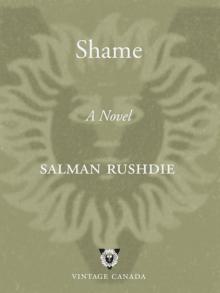 Shame
Shame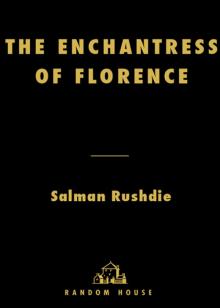 The Enchantress of Florence
The Enchantress of Florence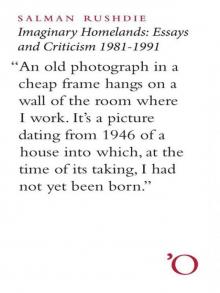 Imaginary Homelands: Essays and Criticism 1981-1991
Imaginary Homelands: Essays and Criticism 1981-1991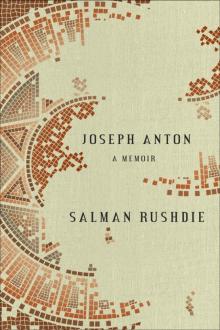 Joseph Anton: A Memoir
Joseph Anton: A Memoir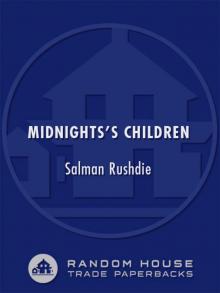 Midnight's Children
Midnight's Children East, West: Stories
East, West: Stories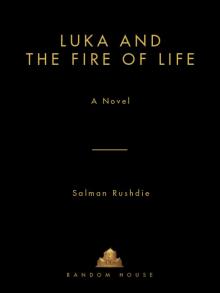 Luka and the Fire of Life
Luka and the Fire of Life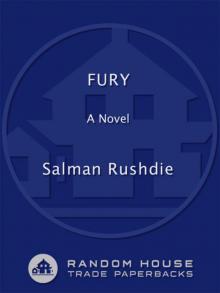 Fury Fury Fury
Fury Fury Fury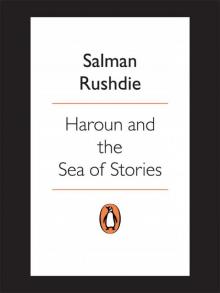 Haroun and the Sea of Stories
Haroun and the Sea of Stories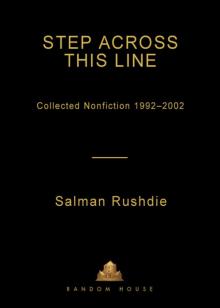 Step Across This Line: Collected Nonfiction 1992-2002
Step Across This Line: Collected Nonfiction 1992-2002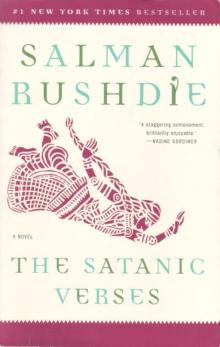 The Satanic Verses
The Satanic Verses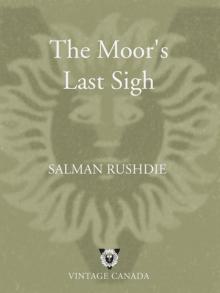 The Moor's Last Sigh
The Moor's Last Sigh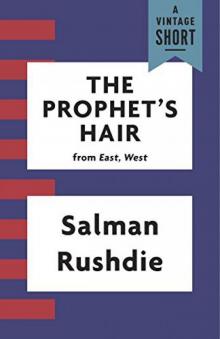 The Prophet's Hair
The Prophet's Hair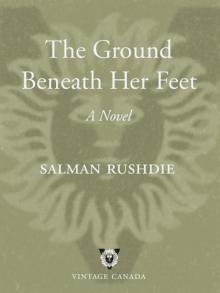 The Ground Beneath Her Feet
The Ground Beneath Her Feet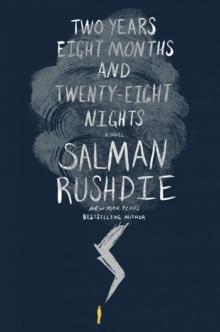 Two Years Eight Months and Twenty-Eight Nights
Two Years Eight Months and Twenty-Eight Nights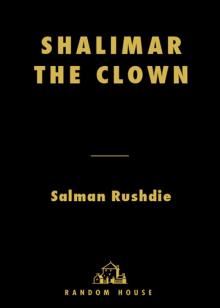 Shalimar the Clown
Shalimar the Clown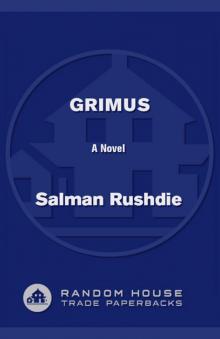 Grimus
Grimus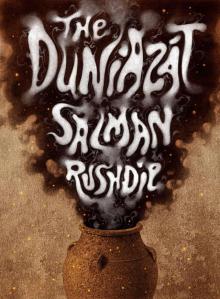 The Duniazát
The Duniazát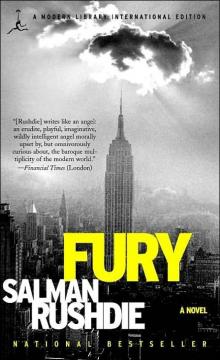 Fury
Fury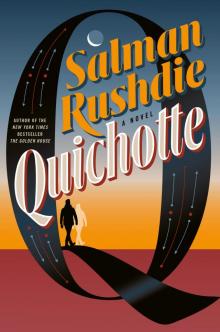 Quichotte
Quichotte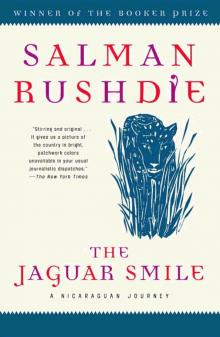 The Jaguar Smile
The Jaguar Smile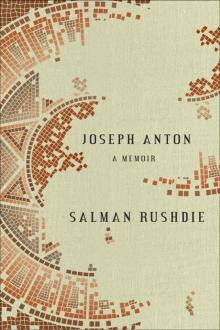 Joseph Anton
Joseph Anton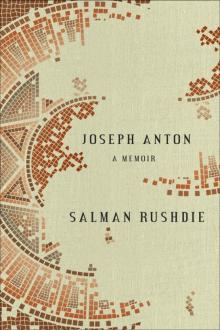 Joseph Anton: A Memoir: A Memoir
Joseph Anton: A Memoir: A Memoir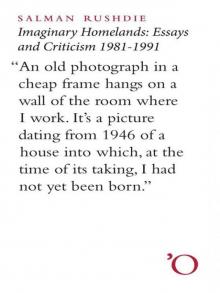 Imaginary Homelands
Imaginary Homelands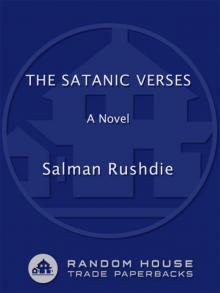 The Satanic Verses: A Novel
The Satanic Verses: A Novel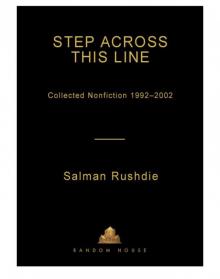 Step Across This Line
Step Across This Line East, West
East, West